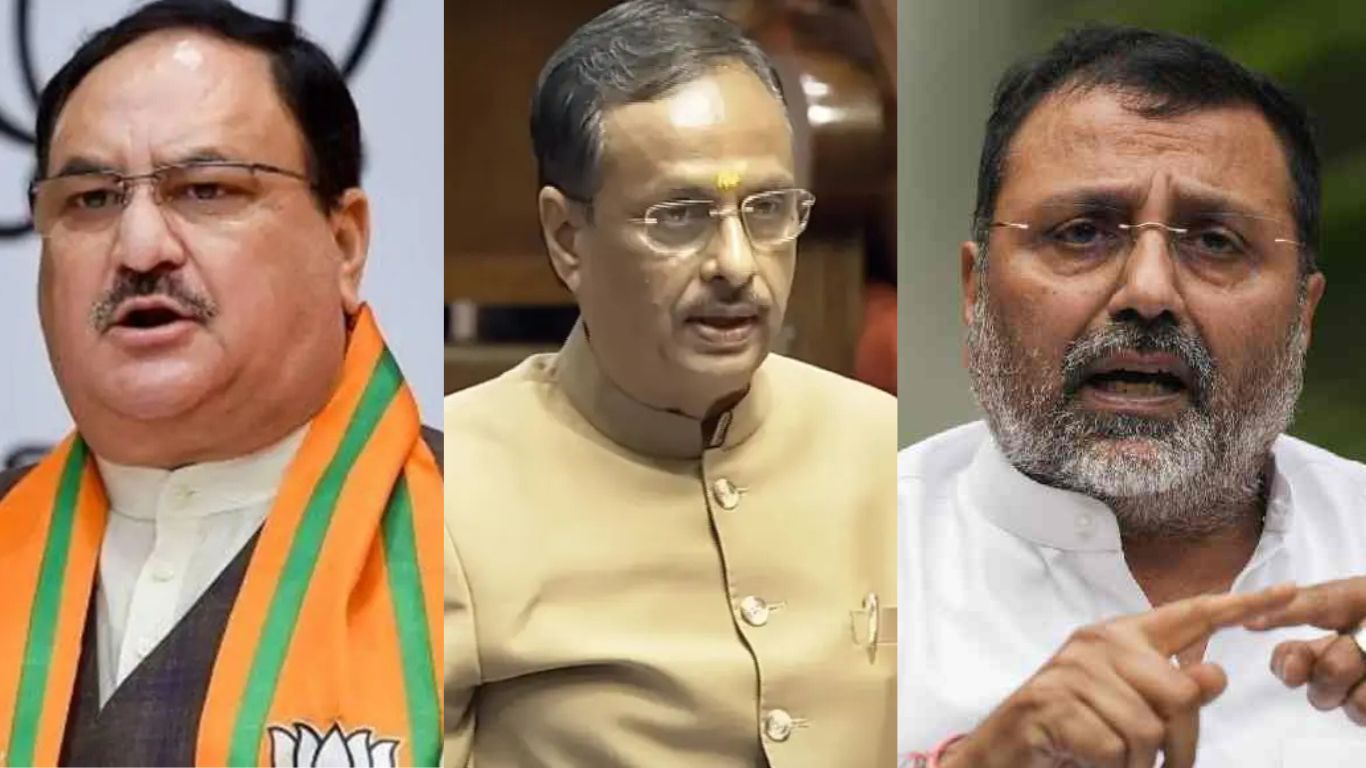The growing unease among large sections of India’s population over the judiciary’s recent actions is no longer a fringe sentiment. When BJP MPs like Nishikant Dubey and Dinesh Sharma express frustration with the Supreme Court’s approach under Justice Sanjiv Khanna, they’re not speaking in isolation. Their anger reflects a broader discontent, particularly among the Hindu majority, over what many see as the judiciary’s increasing drift from constitutional balance and democratic accountability.
While the BJP leadership has distanced itself from these remarks, the disavowal seems more like a political necessity than a principled stand. Outgoing BJP President J.P. Nadda — also a cabinet colleague of Prime Minister Narendra Modi — was quick to claim the MPs were speaking in a personal capacity. Call it hypocrisy or damage control, but the sentiment they voiced resonates deeply with millions of party supporters across the country.
Meanwhile, social media is flooded with criticism of the Supreme Court bench’s perceived overreach and its selective interpretation of the Constitution.
At the heart of the crisis is a judiciary that increasingly appears unmoored from the letter and spirit of the Constitution. Take Article 142, which empowers the Supreme Court to “do complete justice.” What was meant as a corrective tool in exceptional cases has now morphed into a backdoor legislative weapon — used not just to interpret but to create law, often overriding the will of Parliament and the Executive. Whether it is staying laws passed by a democratically elected Parliament or undermining the role of the Governor in states, the Court has been testing the elasticity of its powers with alarming frequency.
One cannot forget the comments of Vice President Jagdeep Dhankhar, himself a senior legal practitioner, who bluntly reminded the judiciary of its constitutional limits. His concern was simple yet profound: in a democracy, the will of the people, expressed through elected representatives, cannot be held hostage to judicial activism. The judiciary is not the sovereign; it is a co-equal organ meant to function within the Constitution, not above it.

The Supreme Court’s interventions in matters ranging from religious processions to appointments of Election Commissioners to redefining the powers of Governors have gone beyond legal interpretation. They increasingly carry the whiff of ideological overreach, where the bench seems to be legislating from the pulpit, driven by activist impulses instead of constitutional restraint. Even former justices have begun to sound the alarm, warning against the Court becoming a parallel super-government.
Yes, judges must interpret the Constitution, but they cannot rewrite it. The appointment of judges themselves through the opaque collegium system — a process not found anywhere in the Constitution — remains one of the most undemocratic practices in the world’s largest democracy. No other constitutional post — not a minister, MP, governor, or even the Prime Minister-is — is selected without either direct election or transparent selection. Yet the highest court in the land continues to appoint itself, without parliamentary oversight or public scrutiny.
What then happens when this unelected, self-selecting elite begins to override elected governments, question the democratic process, and intervene in political matters with impunity? The result is exactly what we see today: a growing loss of public confidence in the judiciary’s impartiality. Hindus, who have traditionally placed immense faith in the judiciary despite repeated setbacks, are beginning to feel that their patience is being mistaken for passivity. They do not demand favoritism — only fairness. But when verdicts repeatedly seem to align with political correctness instead of constitutional clarity, questions inevitably arise.
Let’s be clear: criticism of the judiciary is not an attack on the Constitution. On the contrary, it is a call to uphold its sanctity. Article 121 of the Constitution prohibits Parliament from discussing a judge’s conduct except in the context of impeachment — a high threshold rightly meant to preserve judicial independence. But judicial independence is not judicial infallibility. The Constitution also provides a mechanism to address judicial overreach through impeachment under Articles 124(4) and 217. That option, long considered unthinkable, may no longer be off the table if public trust continues to erode.
Prime Minister Modi’s government has so far exercised restraint bordering on saintly patience, even when court rulings have run roughshod over legislative intent. But restraint should not be mistaken for weakness. The judiciary must read the mood of the nation, not to capitulate to populism, but to ensure that its authority remains rooted in public trust and constitutional fidelity.
In a democracy, no institution is above scrutiny — not even the judiciary. The time has come for the courts to introspect and re-anchor themselves in constitutional discipline. Or else, the very edifice of judicial legitimacy may crumble under the weight of its own overreach.




